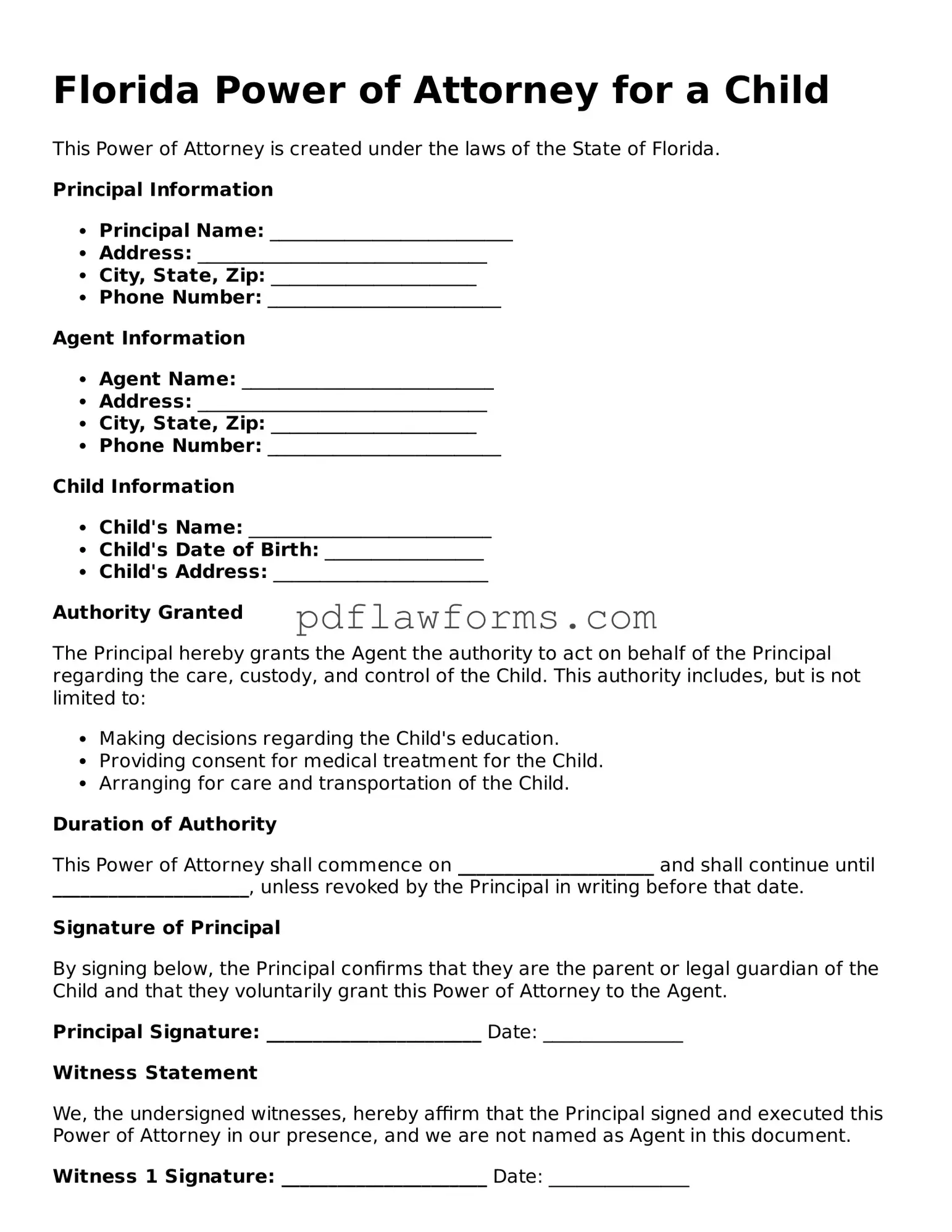Power of Attorney for a Child Form for the State of Florida
The Florida Power of Attorney for a Child form allows a parent or guardian to designate another adult to make decisions on behalf of their child. This legal document can be crucial in situations where the parent is unavailable, ensuring that the child's needs are met promptly. To get started, fill out the form by clicking the button below.
Make My Document Online

Power of Attorney for a Child Form for the State of Florida
Make My Document Online
You’re halfway through — finish the form
Edit and complete Power of Attorney for a Child online, then download your file.
Make My Document Online
or
⇩ Power of Attorney for a Child PDF
